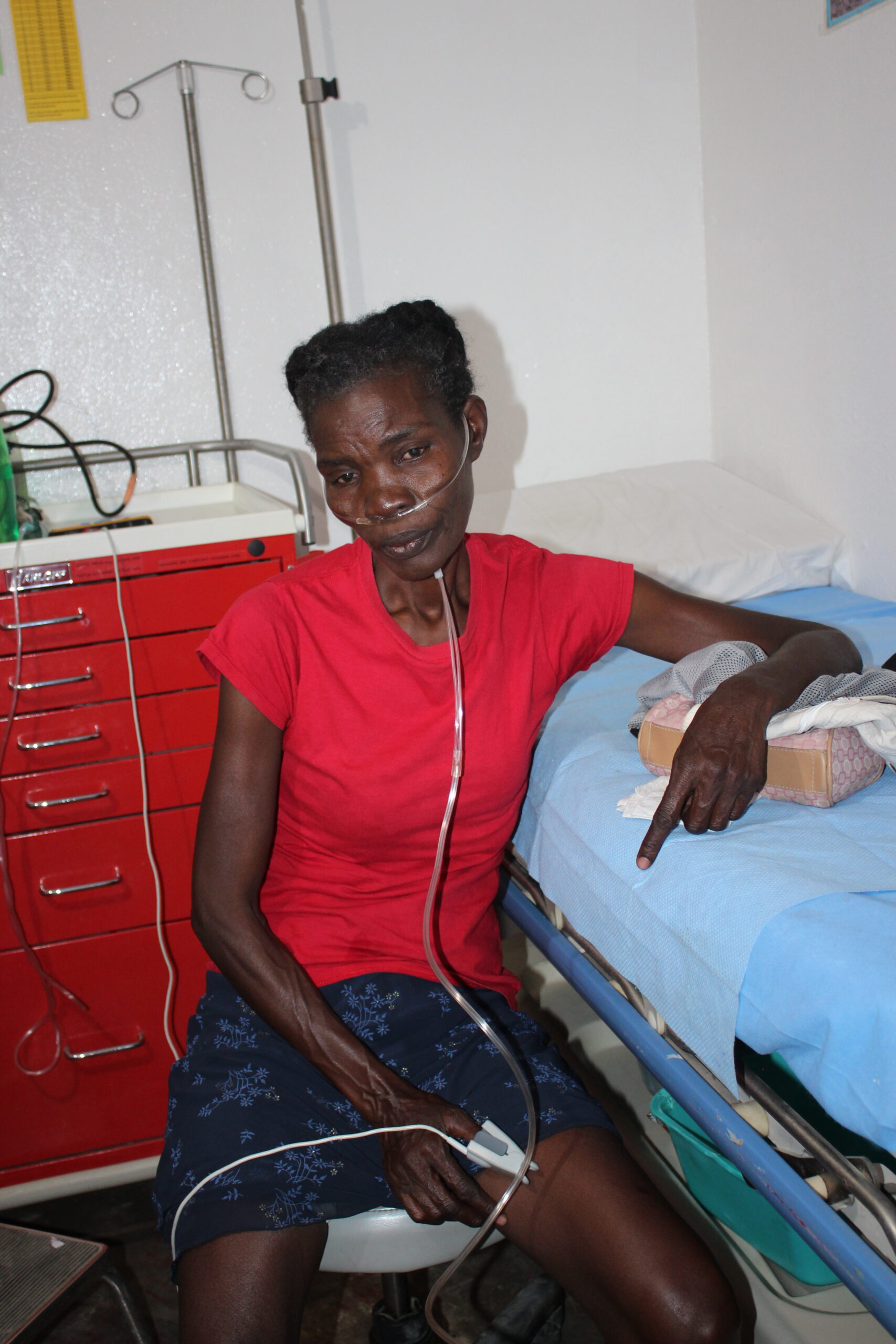Elcina is a 57-year old woman who lives about 30 minutes from the clinic. She sells second-hand clothes at the market to support her family, but life has become even harder because of the crisis in Haiti.
Last Monday, while working at her stall, dust irritated her throat. When she got home, she took her usual medications to help her breathe, but it quickly ran out. Her condition got worse, and by Friday, she was struggling to breathe. Her son, seeing her distress, rushed her to the clinic on a motorbike since they had no other way to travel.
Thankfully, their journey was safe, but many people living in dangerous areas avoid going to clinics out of fear. When Elcina arrived, the medical team saw her oxygen level was dangerously low at 82%. Even after two nebulization treatments, it remained between 86% and 88%, so they gave her oxygen to help her breathe.
Elcina was thankful the clinic had the equipment to treat her. Many hospitals in Haiti have closed due to a lack of resources and insecurity. Patients in urgent need of care often stay home because their families fear traveling due to kidnappings and violence.
Another big challenge is getting medical supplies. Gangs block roads, making it hard to deliver oxygen and other vital equipment. Even when hospitals have oxygen machines, they often can’t get the tanks needed to run them. This shortage makes every medical emergency a life-or-death situation.
Despite these struggles, the clinic was able to help Elcina. With oxygen support, her levels improved to 96%, and she could finally breathe better. But many others in similar situations don’t get the help they need. How many lives are lost simply because people can’t access medical care in time?
The healthcare situation in Haiti continues to decline. Gangs make every trip dangerous, every doctor’s visit difficult, and every medical supply delivery nearly impossible. In these tough times, every life saved is a victory, but many still face huge obstacles just to get the care they need.


